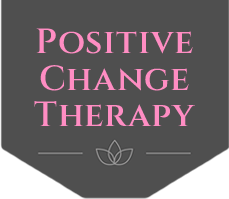Substance abuse counseling in Los Angeles
Has your drinking or drug use become a problem?
- “I can’t seem to stop once I start.”
- “I find myself using/drinking more than I intend.”
- “I keep going back to it even though I know it’s bad for me.”
- “It’s affecting my work/school/relationships.”
- “I’m missing commitments because of it.”
- “I spend too much money on it.”
- “I use it to cope with stress/anxiety/depression.”
- “I’m always tired/run-down.”
- “My friends and family are worried about me.”
- “I avoid seeing people because of it.”
- “I’ve had arguments or conflicts because of it.”
- “I’ve tried to cut back, but I can’t.”
- “I don’t like who I am when I’m using/drinking.”
- “I wish I could stop, but I don’t know how.”
- “I stopped for a while, but then I went back to it.”
- “I thought I had it under control, but it’s come back.”
- “I’ve gotten into trouble because of it.”
- “I’m worried about my health because of it.”
Have friends and family commented on your drinking and/or drug use? Have you noticed that substances are creating new problems for you or making existing issues worse?
Physical Health Effects
- Declining Health: Substance abuse can lead to chronic health issues, such as liver damage from alcohol abuse. The abuse can weaken the immune system, leading to frequent illnesses.
- Physical Dependence: Many addictive substances create a physical dependency on them and withdrawal symptoms without them. This can lead to a cycle of use that feels impossible to break.
Mental and Emotional Health
- Mental Health Disorders: Addiction is often present alongside other mental health disorders like depression, anxiety, or bipolar disorder, and can make those existing mental health issues worse.
- Emotional Distress: Substance abuse can cause you emotional turmoil, including shame, guilt, and self-doubt. These emotions can erode self-esteem and contribute to a sense of hopelessness.
Relationships and Social Life
- Strained Relationships: Heavy alcohol or drug use often strains or destroys relationships with family, friends, and romantic partners. It can lead to arguments, distrust, and isolation from social support systems.
- Social Isolation: As addiction progresses, you may find yourself withdrawing from social activities and support systems.
Work and Financial Consequences
- Job and Career Issues: Substance abuse can result in reduced productivity, absenteeism and job loss.
- Financial Problems: Addiction can lead to financial difficulties, debt, and even homelessness.
Legal and Safety Risks
- Legal Trouble: Many addictive behaviors are illegal or lead to illegal activities, resulting in arrests or court cases.
- Safety Concerns: Substance abuse increases the risk of accidents, injuries, or risky behaviors.
Loss of Control and Purpose
- Sense of Loss of Control: Substance abuse can lead to you feeling trapped in a cycle of use and relapse.
- Loss of Purpose: As addiction progresses, you can lose your sense of purpose and direction, leading to existential crises or feelings of emptiness.
Substance abuse counseling can help you identify if there’s an issue going on for you with drugs and/or alcohol and can help you start addressing it.
Maybe you’ve been to treatment and are ready to commit to long-term recovery or maybe you’re just exploring the idea that you could have a problem with drugs and alcohol and want to cut down.
An addiction therapist provides a safe space for you to address the underlying causes of your addiction, work through the damage it has caused, and rebuild a healthier, more fulfilling life. Counseling for drug and alcohol abuse can provide the tools and support you need to manage the recovery process, reinforcing your commitment to change and offering guidance along the way.
Your life may gradually transform as you work toward recovery.
Early Stages of Therapy
- Awareness and Acceptance: You begin to acknowledge your substance use/abuse and its impact on your life. Acceptance is a crucial step toward recovery.
- Establishing a Support System: Therapy helps identify and connect you with your support network, such as family, friends, and support groups. This support system is vital in encouraging and maintaining the positive changes you are making.
Developing Coping Strategies
- Learning Coping Mechanisms: Therapy provides tools to manage cravings, triggers, and stress. These coping strategies are crucial in reducing your use or risk of relapse.
- Addressing Underlying Issues: Substance abuse often masks deeper emotional or psychological issues. Therapy can help you uncover and address these root causes.
Rebuilding Relationships
- Repairing Relationships: Therapy can facilitate communication with loved ones, helping to rebuild trust and mend broken relationships.
- Reconnecting Socially: As you progress in therapy, you may find yourself reconnecting with friends and social circles from which you withdrew while you were drinking and using.
Improved Health and Well-Being
- Physical Health Recovery: With sobriety, your physical health often improves, with increased energy, better sleep, and overall well-being improving.
- Mental and Emotional Stability: Therapy helps you manage co-occurring mental health disorders and develop emotional stability. This can lead to improved mood and reduced anxiety.
Achieving Personal and Professional Goals
- Returning to Work or School: As you recover, you may find stability in your job that previously eluded you or pursue educational goals you’ve given up on.
- Setting and Achieving Goals: Therapy encourages setting achievable personal goals, whether related to career, education, or personal interests.
Building a Sober Lifestyle
- Engaging in Healthy Activities: You may start exploring new hobbies, exercise, or other activities that support a sober lifestyle.
- Establishing Boundaries: Therapy can help you set boundaries to avoid triggers and harmful environments.
Ongoing Support and Relapse Prevention
- Continuing Therapy and Support Groups: Alongside therapy, participating in support groups, like Alcoholics Anonymous, Narcotics Anonymous or Refuge Recovery, can provide you continuous reinforcement and community.
- Developing a Relapse Prevention Plan: Therapy can help you create a plan to manage setbacks and reduce your risk of relapse, offering a proactive approach to maintaining sobriety.
Finding Meaning and Purpose
- Rediscovering Purpose: As your substance use decreases or stops and sobriety takes hold, you may find new meaning in life, whether through relationships, career, spirituality, or personal growth.
- Giving Back: Many in recovery find fulfillment in helping others who are also struggling with substance abuse, giving back through mentorship or volunteering.
Getting better from addiction means you can live without depending on substances, regain control over your life, and start to feel healthy and strong again. It allows you to rebuild relationships with family and friends, focus on your goals, and find happiness in everyday things. It’s about finding stability, confidence, and a new sense of purpose.
Substance abuse counseling meets you where you’re at and focuses on your individual needs.
Getting therapy for your substance use can help you…
- Become aware of the problem and motivate you to make the changes needed to feel better
- Address the underlying issues behind your drinking/using
- Develop healthy coping strategies to deal with stress, triggers and cravings
- Establish healthy habits
- Create a prevention plan so you can maintain your healthy lifestyle
- Reclaim your life
- Stop the guilt associated with your behaviors while under the influence
- Gain the trust of friends/family again
- Strengthen your support system
- Feel like your life is no longer spinning out of control
- Build resilience
- Define and achieve your personal goals
- Rediscover those interests and passions you thought were lost to you
- Encourage personal growth
- Acknowledge and celebrate your progress
- Maintain long-term recovery with continued support and guidance
What is substance abuse counseling?
How does substance abuse counseling work?
When is counseling for drug and alcohol abuse needed?
How much does substance abuse counseling cost?
How long does the substance abuse counseling process take?
How do I know if substance abuse counseling is right for me
How often should I have a session with an addiction therapist?
Outside of substance abuse counseling, will I need additional support to reduce or stop my substance use?
your healing journey Today.


